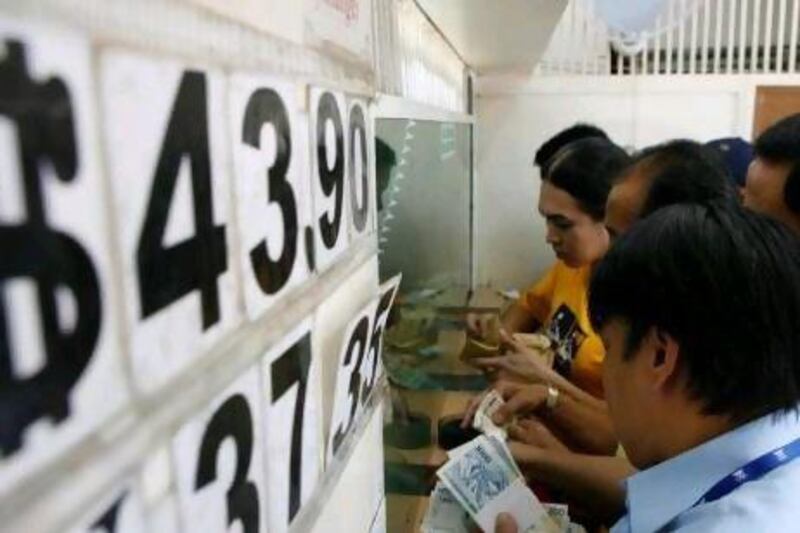Ismail Ahmed is the founder of WorldRemit, a currency transfer service that aims to give expats a more transparent and less expensive way to send their money home.
After years of working as a compliance adviser with the UN development programme and a consultant for money transfer companies in the Horn of Africa remittance corridor, Mr Ahmed realised there was a growing trend for sending smaller amounts more often - but the fees involved were too high to make it viable.
With this in mind, he set up WorldRemit in 2009 to cater to this new demographic, who can send as little as £5 (Dh29.68) to family via local agents, bank accounts, mobile wallets or as a mobile airtime top-up, which can be converted into cash by the receiver.
What is the biggest issue in remitting money?
Inconvenience and expensive transfers. People don't understand all the hidden charges. There are several regulations forcing companies to display the real charges, but that is not always the case. They find a way to hide that. I thought there was a different way to do that and I have largely succeeded in doing so. Customers have changed their behaviour. They are sending money four or five times a month. In the past, they couldn't do that simply because sending £10 was going to take 70 or 80 per cent, basically, with the high fee. So now it is possible to send smaller amounts.
Is your service popular with the lower-income demographic?
It is actually popular across the board. The response we have received is quite surprising. And I think, in these difficult times, people get a text from family back home saying they don't have money for a taxi or to go to school; they might be sick and need a doctor. So they need a very small amount. You see that a lot, especially with mobile phones.
How much cheaper is it to remit money through WorldRemit?
If you are sending money from the United Kingdom to West Africa, somewhere like Kenya and Nigeria, or to the Philippines, the bank will charge you £25. For the same transfer, we charge £2.99 from the UK and €3.99 [Dh18.88] from Europe. And that money either gets there instantly to the bank in the case of Nigeria, for instance, or the same day in the case of Kenya or the Philippines. So that is the difference.
How is technology changing the way we remit our money?
It is beginning to change, but I think there is still a long way to go. The issue is not just technology; it is the complex compliance requirements. It is still quite challenging and, of course, the UAE is probably one of the most competitive markets. But if you go to some place like Europe, companies like Western Union have 80 to 90 per cent of the market. In some countries, you just can't find a correspondent for cash pick-up. Where technology is helping in some parts of Africa is mobile money transfers. I think some of those technologies are helping, but otherwise it is still too early.
What about the future; how will we be sending our money in 10 years?
I remember a few years ago when same-day service was premium and today we can offer instant cash pick-up. That is what people want. I think, going forward, what is going to happen is the shift to mobile. Our airtime top-up allows somebody to send mobile airtime to a member of their family in an instant. And in a lot of those countries, they have a recipient scheme where they can exchange the airtime for cash. So someone could easily get £5 instantly on their mobile and then they can exchange whatever airtime to pay for their transport. That is where I see the future.






